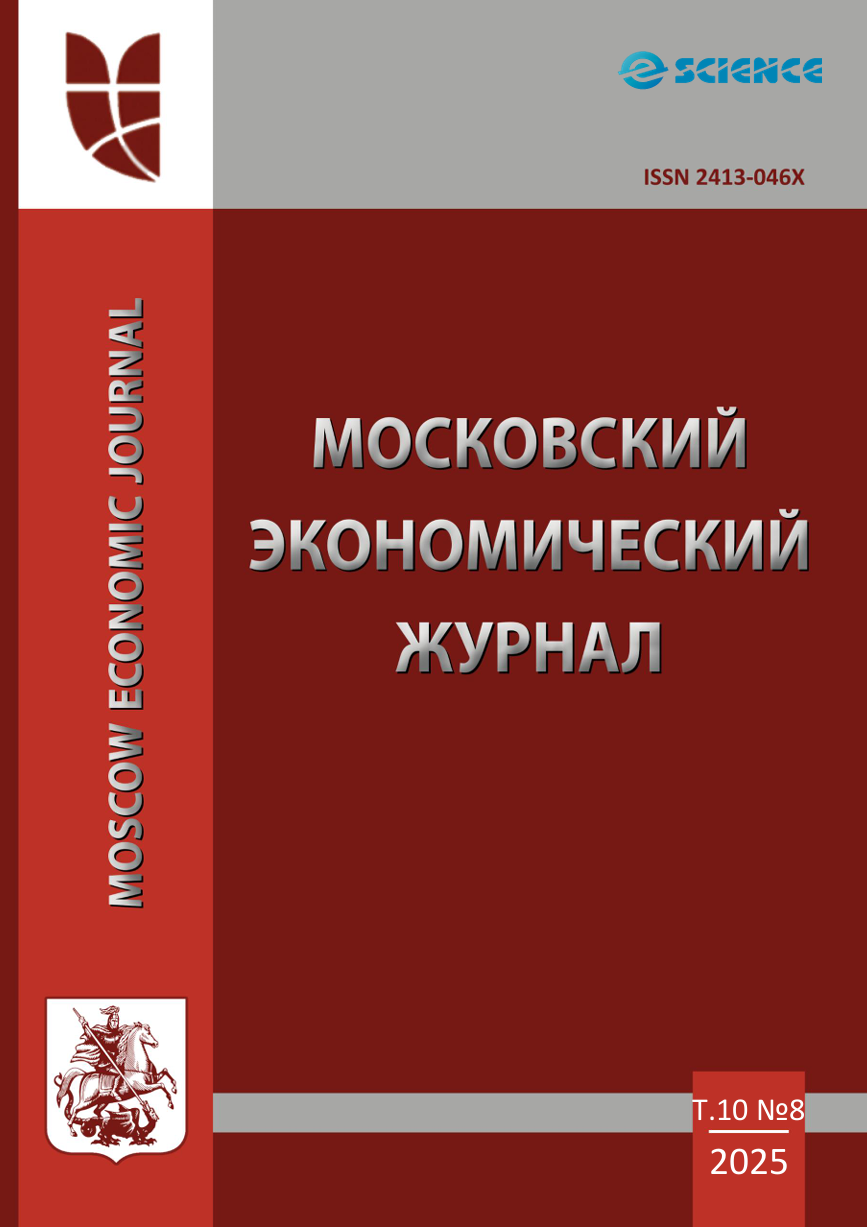employee
UDC 332.14
The article examines a fundamental paradigmatic shift in spatial development approaches – the transition from the traditional sectoral model to a territorial approach as a new integrative paradigm. The author analyzes the theoretical foundations of this shift, drawing on key concepts in modern regional economics: new economic geography, territorial capital theory, and the place-based development framework. It is emphasized that territories are no longer perceived as passive sites for allocating productive forces but have become active agents of development, endowed with unique combinations of tangible and intangible assets. The study outlines the core principles of the territorial approach – spatial heterogeneity, cross-sectoral synergy, participatory governance, and sustainability – and highlights its advantages over the sectoral model. Special attention is given to the Russian context, where historically entrenched spatial disparities, centralized governance, and weak local institutions simultaneously create a need for territorial management and pose systemic barriers to its implementation. Strategic directions for institutional transformation are identified, including decentralization of authority, participatory mechanisms, digitalization of governance, territorial typology development, and integrated indicator systems. The conclusion stresses that successful adoption of the territorial approach in Russia will require not only political commitment but also profound structural and institutional reforms to establish an equitable, sustainable, and inclusive model of spatial development.
territorial approach, spatial development, sectoral paradigm, place-based development, territorial capital, regional policy
1. Barca F., McCann P., Rodríguez-Pose A. The case for regional development intervention: Place-based versus place-neutral approaches // Journal of Regional Science. 2012. Vol. 52, № 1. P. 134-152. DOI:https://doi.org/10.1111/j.1467-9787.2011.00756.x.
2. Fujita M., Krugman P. The new economic geography: Past, present and the future // Papers in Regional Science. 2004. Vol. 83, № 1. P. 139-164. DOI:https://doi.org/10.1007/s10110-003-0180-0.
3. Krugman P. The role of geography in development // International Regional Science Review. 1999. Vol. 22, № 2. P. 142-161.
4. Baklanov P.Ya. Prostranstvennye struktury i territorial'nye sistemy v regional'nom razvitii : izbrannoe. – Vladivostok : Tihookeanskiy institut geografii DVO RAN, 2024. – 464 s.
5. Goltakov B.H., Minaev O.M., Mitrofanov S.V. II v optimizacii gorodskogo planirovaniya i sokrascheniya vybrosov CO₂ // Ekonomika i upravlenie: problemy, resheniya. 2024. T. 12, № 11 (152). S. 173-179.
6. Zakshevskiy V.G., Merenkova I.N., Makin G.I. i dr. Monitoring ekonomicheskogo prostranstva sel'skih territoriy s uchetom realizacii interesov naseleniya. – Voronezh : Voronezhskiy federal'nyy agrarnyy nauchnyy centr im. V.V. Dokuchaeva, 2024. – 170 s.
7. Zubarevich N.V. Regiony Rossii: neravenstvo, krizis, modernizaciya. – M. : Nezavisimyy institut social'noy politiki, 2010. – 160 s.
8. Papaskiri T.V. Analiz struktury posevnyh ploschadey Rossii v ramkah koncepcii ustoychivogo zemledeliya / T.V. Papaskiri, S.V. Mitrofanov, I.Yu. Bogdanchikov i dr. // Agrarnaya nauka. 2024. № 9. S. 136-145.
9. Prostranstvo sovremennoy Rossii: vozmozhnosti i bar'ery razvitiya : razmyshleniya geografov-obschestvovedov / otv. red. A.G. Druzhinin, V.A. Kolosov, V.E. Shuvalov. – M. : Vuzovskaya kniga, 2012. – 336 s.
10. Regional'naya ekonomika i prostranstvennoe razvitie : uchebnik dlya vuzov / pod obsch. red. L.E. Limonova ; pod red. B.S. Zhiharevicha, O.V. Ruseckoy. – 3-e izd., pererab. i dop. – Moskva : Yurayt, 2024. – 445 s. – URL: https://urait.ru/bcode/536402.











